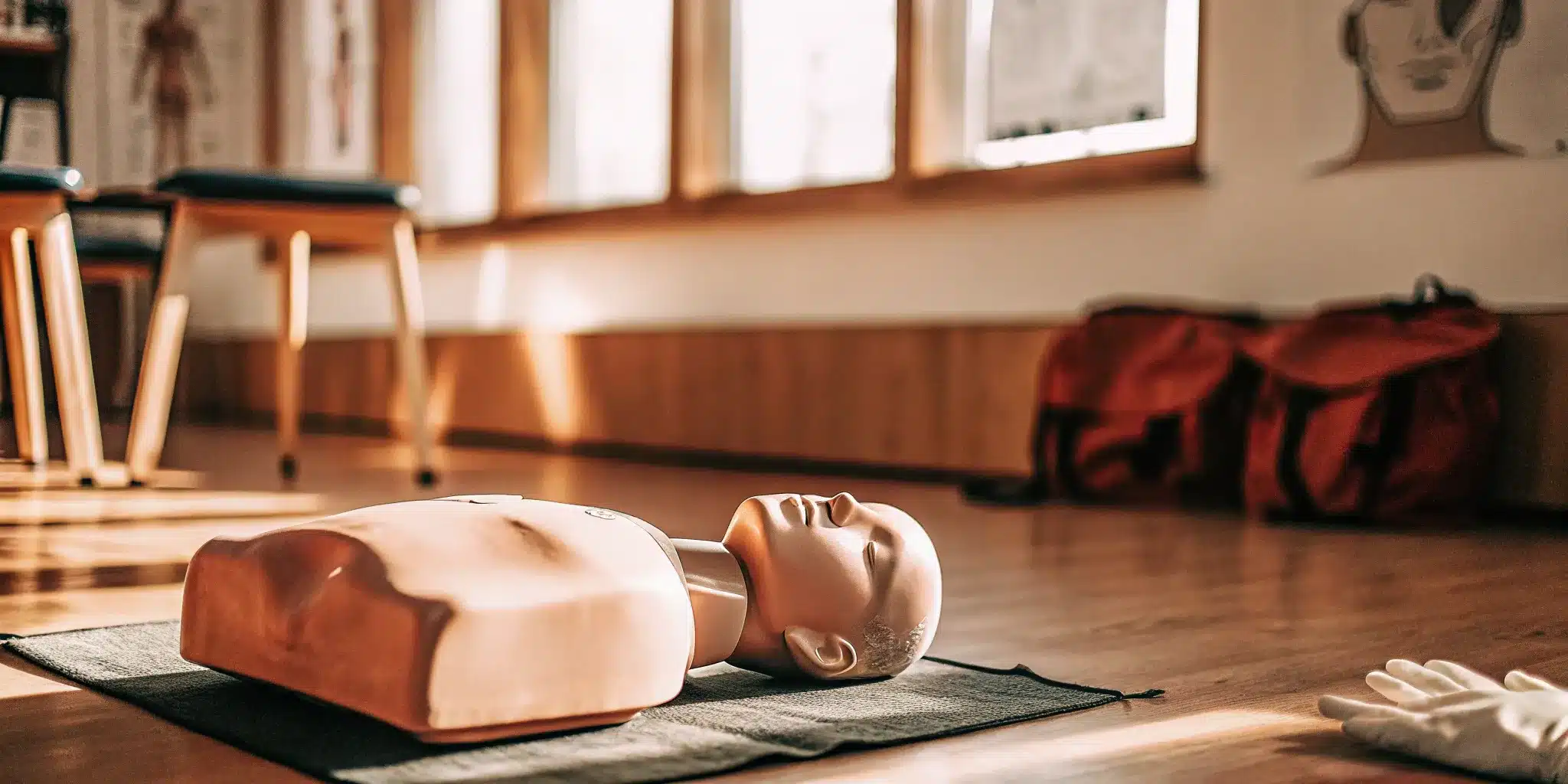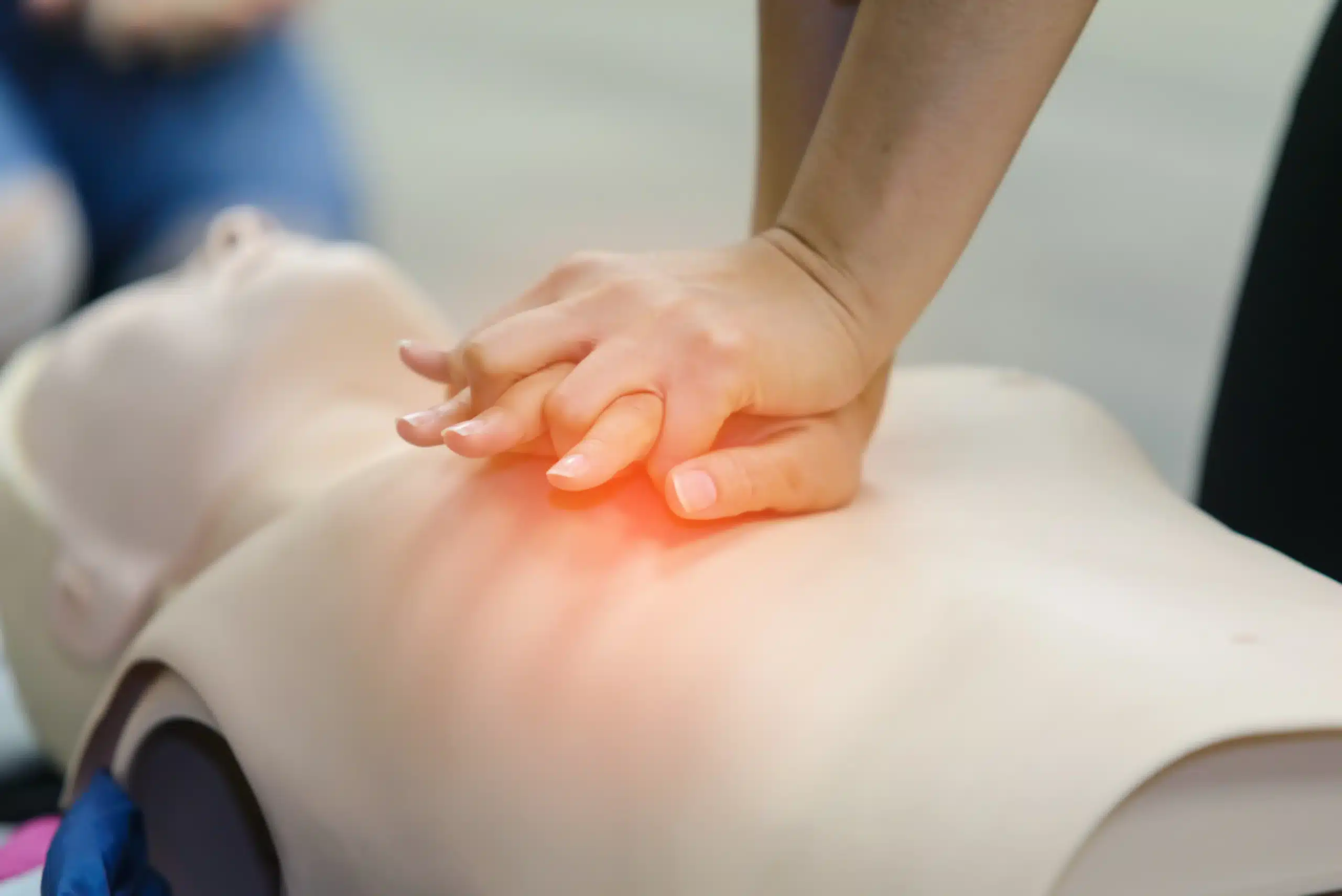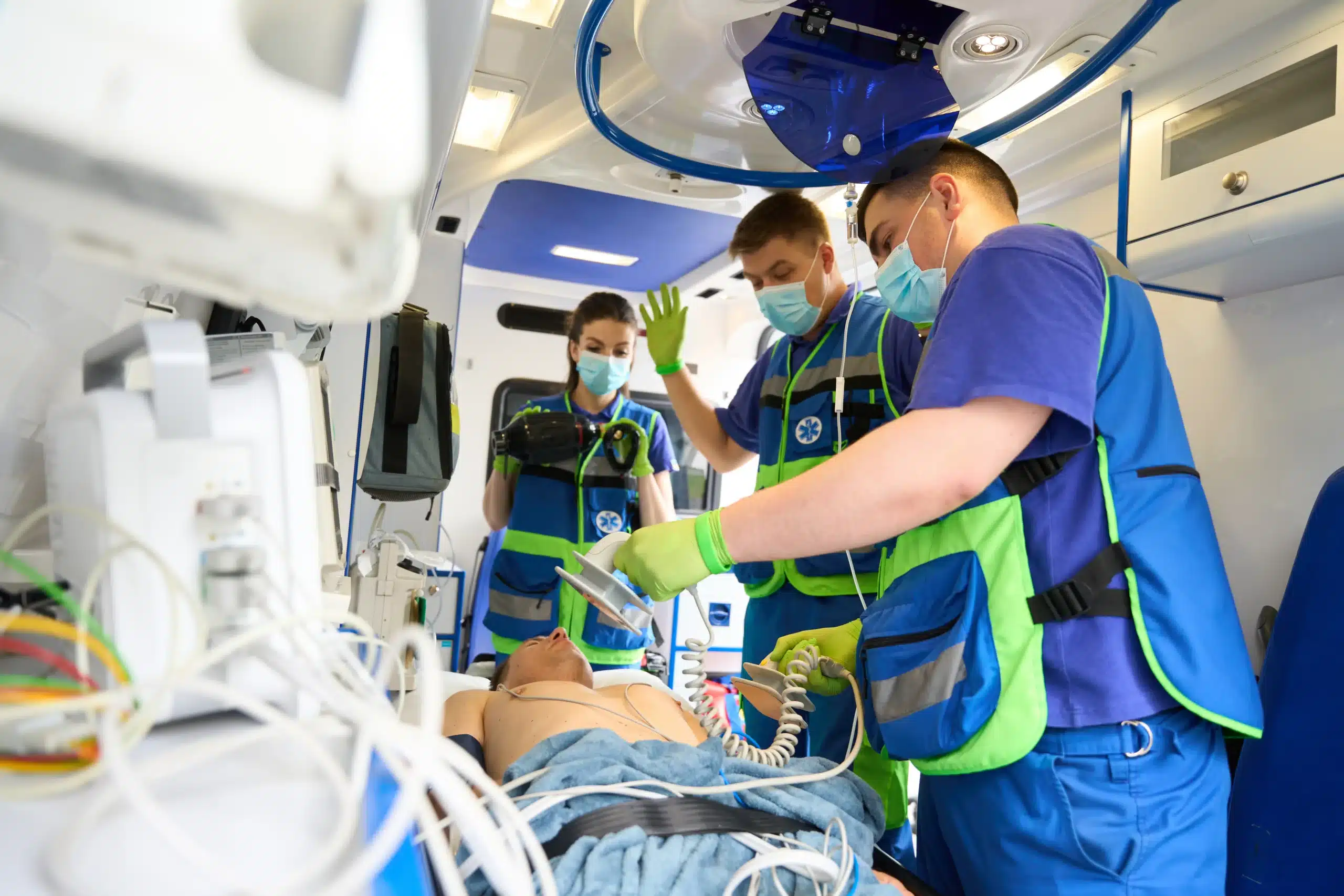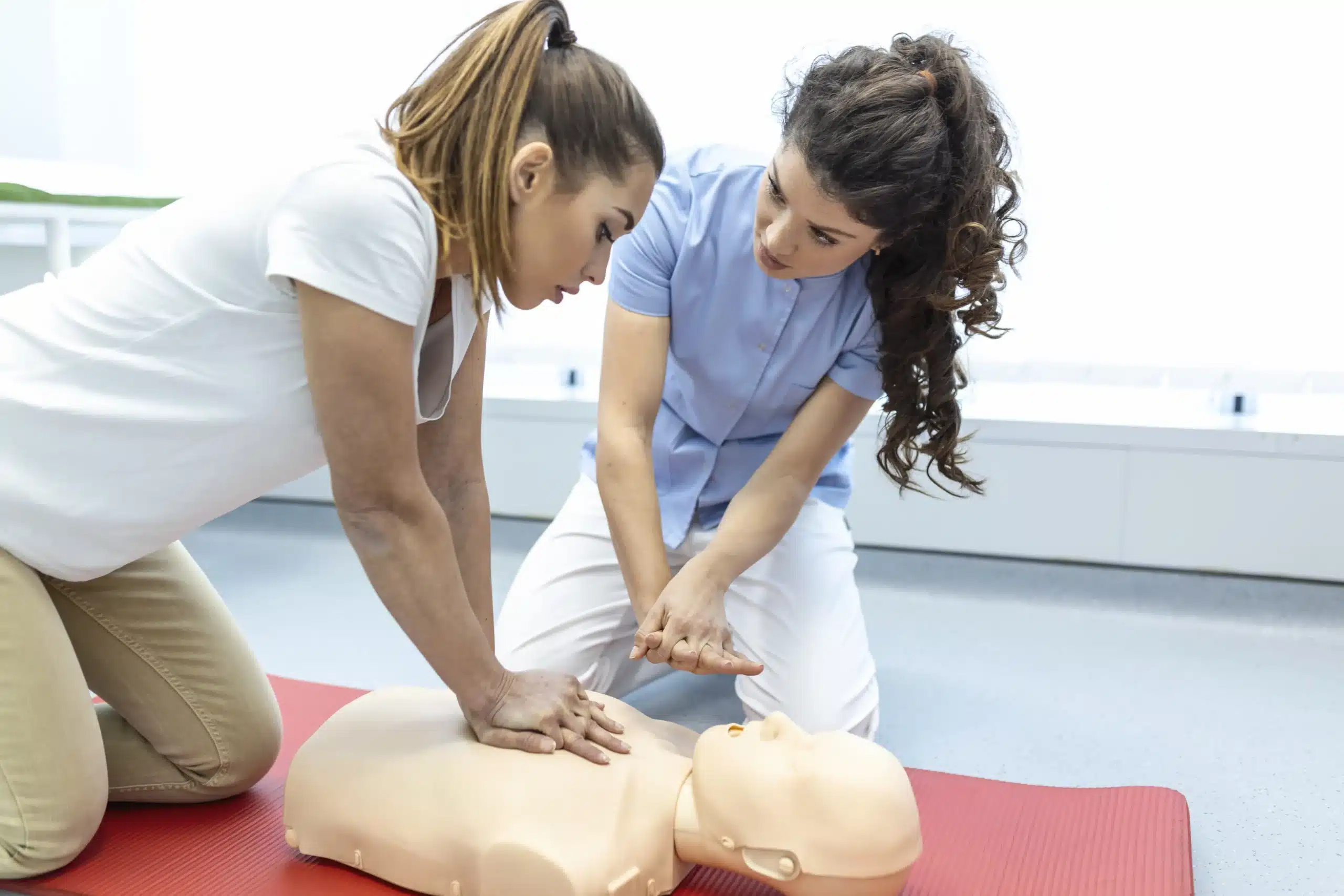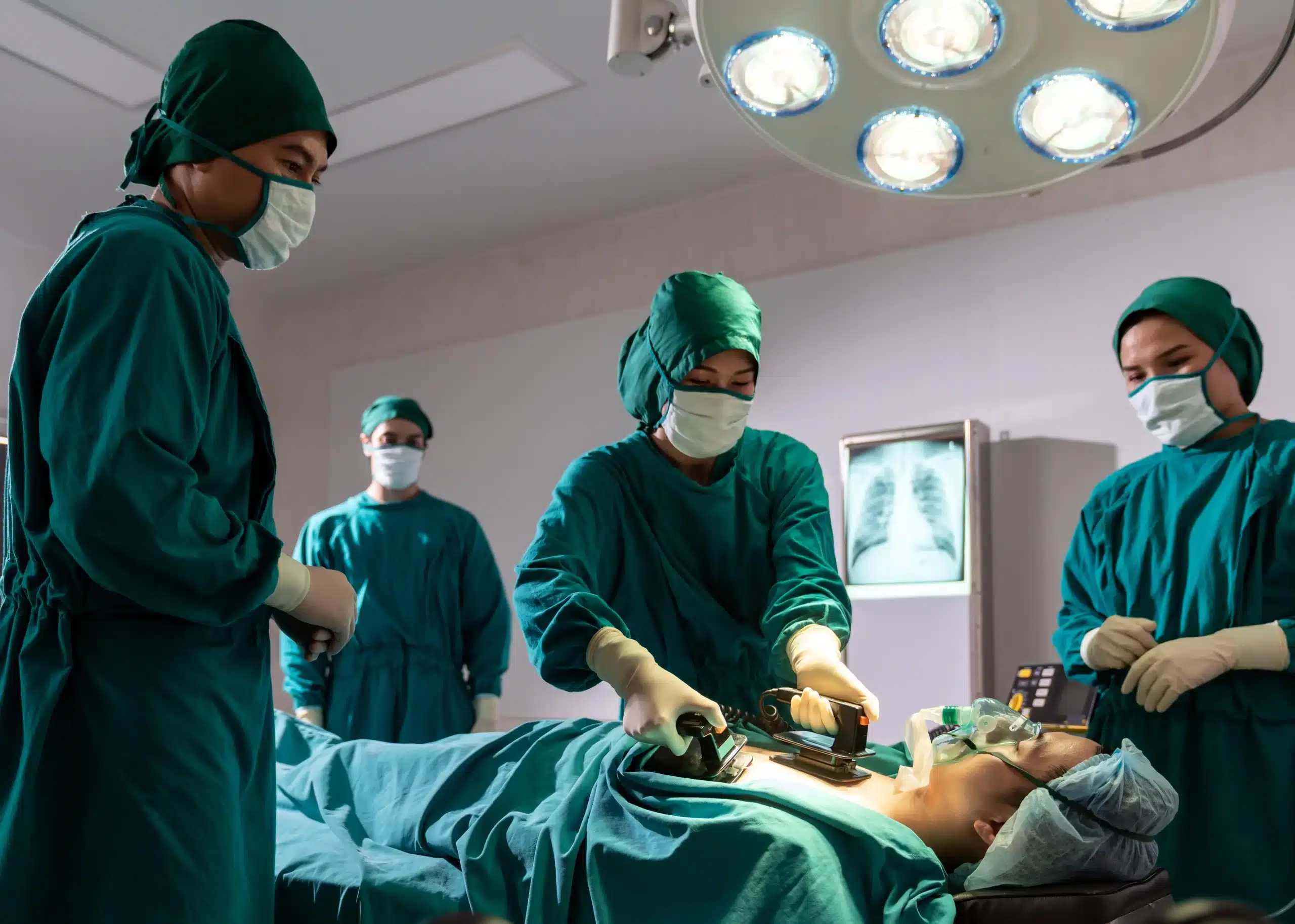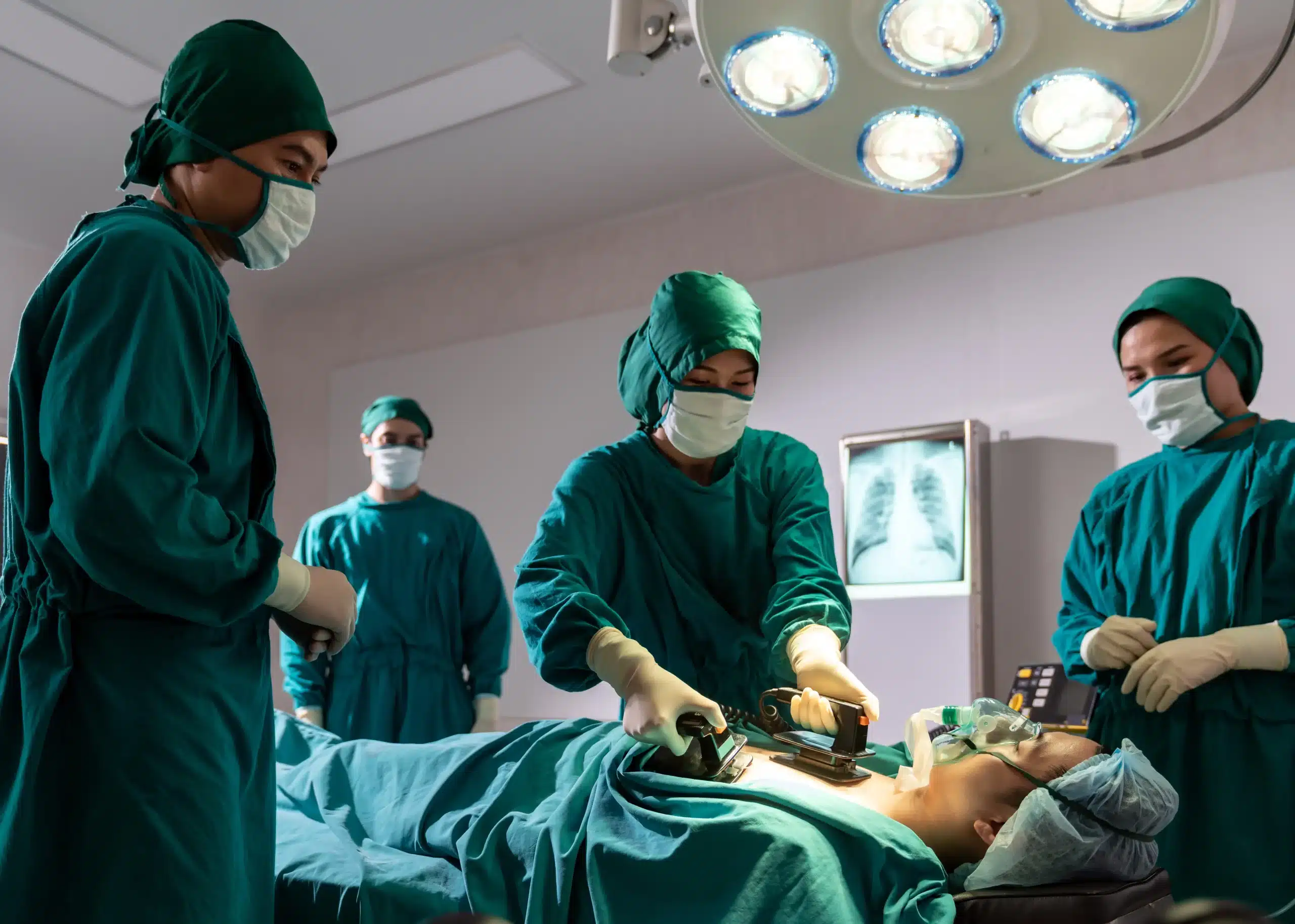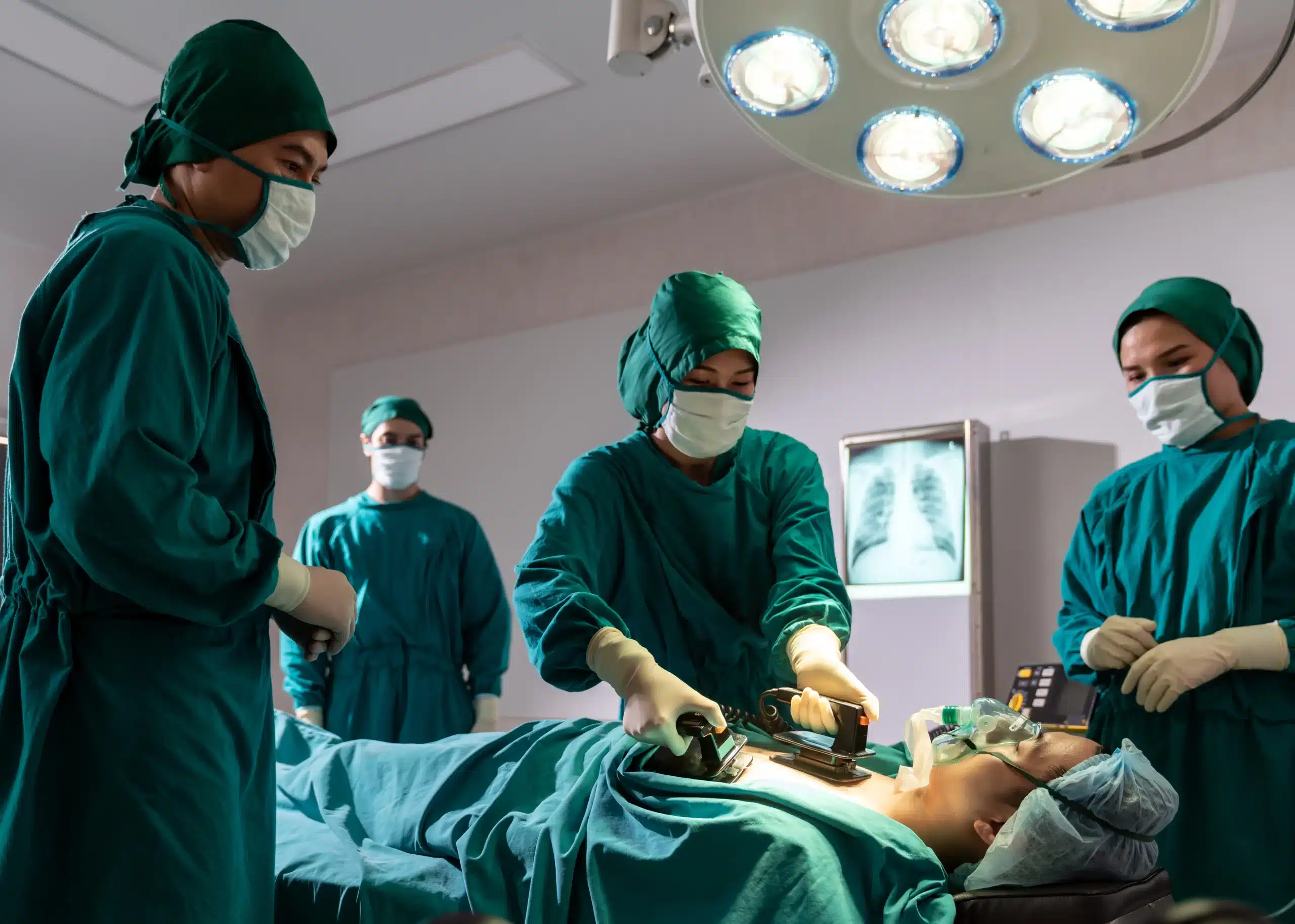Learning CPR can feel empowering, especially when you know you have the skills to potentially save a life. If you’re in San Rafael, Corte Madera, or Fairfax and looking for CPR certification San Rafael, this guide breaks down everything you need to know. From understanding the different types of CPR classes and certification options to navigating costs and scheduling, we’ll equip you with the knowledge to choose the right course for your needs. We’ll also explore the unique benefits of training with San Rafael CPR Classes, including our RQI program and same-day certification options. Whether you’re a healthcare professional, a caregiver, or simply someone who wants to be prepared, this guide will help you find the perfect CPR class in San Rafael.
Key Takeaways
- Find the right CPR class for your lifestyle: San Rafael offers various CPR course formats, including in-person, blended, and online options, allowing you to choose the best fit for your schedule and learning preferences.
- San Rafael CPR Classes offers comprehensive training and flexible options: Explore a wide range of courses, including BLS, ACLS, PALS, and First Aid, plus specialized programs like RQI and EMSA Child Care Health & Safety. Take advantage of their low price guarantee and convenient scheduling.
- Invest in yourself and your community with CPR certification: Become equipped to handle emergencies and potentially save lives by obtaining or renewing your CPR certification. Explore the numerous resources and providers available in San Rafael to begin your training journey.
What is CPR Certification in San Rafael?
CPR certification in San Rafael gives you the skills to respond to cardiac emergencies. It’s a credential confirming you know how to perform cardiopulmonary resuscitation and, often, other life-saving techniques like using an Automated External Defibrillator (AED). These certifications are typically provided by organizations like the American Heart Association (AHA) and the American Red Cross. The training covers essential procedures for various emergencies. Given that hundreds of thousands of cardiac arrests happen each year in the US, having trained individuals ready to respond can make a significant difference. CPR and First Aid certification courses prepare you to act quickly and confidently, potentially saving lives.
In San Rafael, you can find CPR classes in several formats. In-person training offers hands-on learning and often leads to an OSHA-compliant certification, usually valid for two years. You can also find online and blended learning options, offering flexibility for busy schedules. Several organizations in the area offer a range of courses, from Basic Life Support (BLS) to more advanced certifications like Advanced Cardiovascular Life Support (ACLS) and Pediatric Advanced Life Support (PALS). This variety ensures you can find the right training for your needs, whether you’re a healthcare professional, a caregiver, or simply want to be prepared for an emergency. For those in or near San Rafael, numerous options exist to get or renew your CPR certification, ensuring our community is ready to handle medical emergencies. Check our directory for local providers.
CPR Class Types
Choosing the right CPR class format depends on your learning style, schedule, and certification requirements. Let’s explore the main types available in San Rafael: in-person, online, and blended learning.
In-Person Classes
In-person CPR classes offer hands-on training crucial for effectively performing CPR. These classes, like those offered by the American Red Cross in San Rafael, typically result in a two-year certification meeting OSHA standards. With over half a million cardiac arrests occurring annually in the U.S., prompt and effective CPR can be life-saving. In-person classes allow you to practice techniques on mannequins, receive immediate feedback from instructors, and ask questions. This direct interaction builds confidence and prepares you to respond effectively in emergencies.
Online Options
Online CPR classes provide a convenient alternative, allowing you to learn at your own pace and on your own schedule. However, while online courses offer flexibility, they often lack the hands-on practice necessary for certain certifications, including those required by OSHA. Online CPR training might be more suitable for refreshing your knowledge or for those seeking general information rather than formal certification. If you need certification for your job, always confirm whether a purely online course meets the specific requirements.
Blended Learning
Blended learning combines online learning with in-person skills sessions. This format is especially helpful for those seeking recertification, such as ACLS recertification, allowing you to review the material online before attending a hands-on session with an instructor. This approach is often more efficient, especially for busy professionals. Blended learning ensures you receive practical experience while offering the convenience of online study.
CPR Certification Costs & Value
Getting CPR certified is an investment in yourself and your community, empowering you to respond effectively during emergencies. But what does that investment look like in San Rafael? Let’s break down the costs associated with CPR certification and explore the incredible value it provides.
Certification Price Ranges
CPR certification costs in San Rafael vary depending on the course and provider. You’ll find options to fit different budgets, making this life-saving skill accessible to everyone. Safety Training Seminars offers competitive pricing for CPR, BLS, ACLS, PALS, and First Aid certifications and claims to have some of the lowest prices in Marin County. Comparing prices from different providers, like the American Red Cross, which also offers CPR/AED classes in San Rafael, helps you find the best fit. Remember, the value of CPR training goes beyond the price tag – it equips you with the skills to potentially save a life. With over 500,000 cardiac arrests occurring annually in the U.S., being prepared is invaluable.
Group Discounts & Packages
If you’re certifying a group, such as workplace staff or a community organization, explore group discounts. Many providers, including Safety Training Seminars, offer reduced rates for group training. This creates a cost-effective way to build a network of prepared responders. They can even bring the training to your location and work around your schedule. This simplifies logistics and creates a sense of teamwork. With daily class availability, finding a convenient time for everyone is easier.
CPR Class Duration & Scheduling
Finding the right CPR class often involves balancing your schedule with the course requirements. Let’s break down what you can expect regarding class length and scheduling options in San Rafael.
Typical Class Lengths
CPR classes in San Rafael generally run between four and six hours, depending on the specific course and provider. This timeframe allows instructors to cover essential material, demonstrate techniques, and provide ample practice time. Some providers offer accelerated courses for those with previous CPR training, which can be a great option for recertification or refreshing your skills. Check with providers like San Rafael CPR Classes for these expedited options.
Flexible Scheduling
One of the best aspects of CPR training in San Rafael is the flexible scheduling. Many providers offer classes daily, including weekends, to accommodate various schedules. You can find AHA certification courses seven days a week, making it much easier to fit this important training into your busy life. If you’re training a group, consider providers offering on-site training and group discounts, a cost-effective solution for businesses and organizations. In Home CPR is one example of a provider offering these options.
CPR Certification Accreditation & Validity
Knowing which certifications are accepted is key when choosing a CPR class. This section clarifies what to look for in a recognized CPR certification in San Rafael and beyond.
American Heart Association (AHA) Certification
The American Heart Association (AHA) sets the standard for resuscitation science, education, and training. They publish the official Guidelines for CPR and ECC, making them a trusted resource for millions of healthcare providers and others seeking lifesaving training. Choosing an AHA-aligned course ensures you’re learning the most up-to-date practices. San Rafael CPR Classes offers AHA-compliant BLS courses, equipping you with the skills and knowledge to respond effectively in emergencies.
American Red Cross Certification
The American Red Cross is another highly respected organization dedicated to emergency preparedness and response training. They combine a modern educational approach with the latest science in lifesaving care. Red Cross certification is widely accepted and demonstrates a commitment to high-quality training.
Other Recognized Certifications
While the AHA and Red Cross are leading providers, other valid CPR certifications exist. It’s essential to ensure any online CPR certification you pursue comes from a well-respected organization. Look for providers that adhere to established guidelines and offer evidence-based training. Always verify the legitimacy and acceptance of a certification before enrolling in a course. If you have questions about a specific provider, contact the organization directly to confirm its accreditation and recognition.
Renew Your CPR Certification
Keeping your CPR skills sharp is crucial for responding effectively in emergencies. This section covers how to stay current with your certification.
Certification Validity
Most CPR certifications are valid for two years. Knowing your certification’s expiration date is the first step in ensuring you’re always prepared. Check your certification card or contact the organization that issued it if you’re unsure when yours expires. Regularly refreshing your CPR knowledge benefits everyone, from healthcare professionals to those simply wanting to be prepared for any situation. Staying certified means you’re equipped with the most up-to-date lifesaving practices. For reliable information on CPR certification validity, the American Heart Association offers helpful resources. Consider adding a reminder to your calendar a few months before your certification expires to give yourself plenty of time to renew.
Renewal Steps
Renewing your CPR certification is straightforward. You have several options depending on your learning style and schedule:
- Blended Learning: Combine online coursework with in-person skills practice. This approach offers flexibility while ensuring you get hands-on training. San Rafael CPR Classes offers blended learning courses that fit various schedules. This hybrid model allows you to learn at your own pace online and then practice your skills in a real-world setting.
- In-Person Classes: Traditional classroom settings provide a structured learning environment with direct instructor interaction. This option is ideal for those who prefer hands-on learning and immediate feedback. Check with your local American Red Cross chapter for in-person class availability. The in-person experience allows for asking questions and receiving personalized guidance.
- Online Renewal Courses: Some organizations offer online renewal courses for those needing a refresher. These courses are convenient for reviewing key concepts and maintaining your certification. However, they may not always include the hands-on practice component, so check the course details carefully. CPR guidelines often vary by organization, so choose a course aligned with your original certification. Make sure the online course you select meets the requirements for renewal by your certifying body.
By understanding your certification’s validity and exploring the renewal options available, you can maintain your CPR skills and confidently respond to emergencies.
Choose the Right CPR Class in San Rafael
Finding the right CPR class depends on your needs and learning style. San Rafael offers a variety of options, so consider these factors to make the best choice.
Factors to Consider
First, think about your schedule. Do you prefer a weekend class, an evening course, or something during the workday? Many providers offer flexible scheduling, including weekend and evening options, to accommodate busy lifestyles. Also, consider the class format. In-person classes provide hands-on training and direct interaction with instructors. If your schedule is tight, or you prefer learning at your own pace, an online or blended learning format might be a better fit. Keep in mind that in-person training is often required for certifications that meet OSHA standards.
Another key factor is the type of certification you need. Are you a healthcare provider requiring American Heart Association (AHA) certification? Or are you taking a class for personal knowledge or workplace requirements? Different providers offer various certifications, so ensure the class aligns with your goals. For example, if you work in childcare, you might need an EMSA Child Care Health & Safety certification. Finally, consider your budget. CPR class costs can vary, so compare pricing and look for any available discounts.
Compare Providers
Once you’ve considered your personal needs, it’s time to compare providers in San Rafael. San Rafael CPR Classes offers a comprehensive range of courses, including BLS, ACLS, PALS, and First Aid, with a focus on convenient scheduling and a low price guarantee. They also offer the RQI program for healthcare professionals. Safety Training Seminars is another option for AHA-approved courses. The American Red Cross also offers CPR/AED training in San Rafael. When comparing, look at the specifics of each course, including the curriculum, the instructor’s experience, and any additional resources.
CPR Certification Providers in San Rafael
Finding the right CPR certification course can feel overwhelming, but several excellent providers serve the San Rafael area. Here’s a closer look at some of your options:
San Rafael CPR Classes
San Rafael CPR Classes offers AHA CPR and First-aid certification courses for individuals and organizations. They focus on equipping people with the skills to handle medical emergencies. Their offerings include BLS, ACLS, PALS, and First Aid, making them a comprehensive resource for various certification needs. Serving San Rafael, Corte Madera, and Fairfax, they offer a convenient option for local residents. For those looking for cost-effective training, they also have a low price guarantee. They also offer specialized courses such as the EMSA Child Care Health & Safety program. You can explore additional CPR resources in their Northern California CPR directory.
American Red Cross
The American Red Cross is a well-known provider of CPR and AED classes in San Rafael. They combine the latest science in lifesaving care with a flexible training approach, offering a variety of courses to fit different schedules and learning styles. The Red Cross is a trusted name in emergency preparedness and response training.
Safety Training Seminars
Safety Training Seminars provides on-site training, bringing their BLS, CPR, and First Aid courses directly to businesses in San Rafael. This convenient option eliminates the need for employees to travel off-site for training. They offer flexible scheduling, accommodating businesses’ needs with classes available any day of the week.
Bay Area CPR
Bay Area CPR offers a range of AHA-certified courses including BLS, ACLS, PALS, First Aid, and CPR in San Rafael. With daily class availability and group discounts, they provide accessible and affordable training options. Their focus on AHA certification ensures students receive training that meets industry standards.
San Rafael CPR Classes: What Makes Us Unique?
We’re proud to offer CPR and first-aid training to everyone from healthcare professionals to community members in San Rafael, Corte Madera, and Fairfax, CA. But what truly sets San Rafael CPR Classes apart? Our commitment to flexible learning, accessible pricing, and practical training ensures you gain the confidence and skills to respond effectively in an emergency. Check out our low price guarantee.
RQI Program for Healthcare Professionals
We understand the demanding schedules of healthcare providers. That’s why we offer the Resuscitation Quality Improvement (RQI) program, a streamlined path to maintain your CPR skills. RQI blends online learning with brief, in-person skills sessions and offers same-day certification, allowing you to quickly renew your credentials without disrupting your workflow. Learn more about our RQI classes.
Same-Day Certification
Time is precious, so we’ve designed our courses with efficiency in mind. Many of our CPR and first-aid classes, including those utilizing the RQI program, offer same-day certification. You’ll receive your official American Heart Association (AHA) certification card, valid for two years, immediately upon successful completion of the course. This gets you back to your work or other commitments as quickly as possible. For more information on our AHA-compliant courses, explore our BLS course information.
Hands-on Training & Practical Application
We believe that true confidence comes from hands-on experience. Our classes combine expert instruction with practical application, using voice-activated manikins for realistic skills testing. While you’ll complete the skills test independently, an instructor is readily available by phone to offer support and guidance. We also incorporate real-world scenarios into our training, preparing you to handle diverse emergency situations. We offer specialized courses like our EMSA Child Care Health & Safety program. For a comprehensive list of CPR resources in Northern California, visit our CPR directory.
Why is CPR Certification Important in Healthcare?
CPR certification is absolutely crucial for healthcare professionals. It’s not just a box to check—it’s a fundamental skill that empowers you to make a real difference in critical situations. From responding effectively to emergencies to upholding ethical obligations, CPR certification plays a vital role in providing high-quality patient care. Let’s explore why it’s so essential.
Respond to Cardiac Emergencies
Healthcare providers are often the first to respond during cardiac emergencies. CPR training equips you with the knowledge and skills to act swiftly and effectively in these critical situations. This includes managing respiratory arrest, recognizing and addressing arrhythmias, and providing essential life support until more advanced medical help arrives. The American Heart Association offers resources for healthcare professionals, covering everything from basic life support to advanced cardiac life support. Having this training can truly be the difference between life and death for your patients.
Legal & Ethical Responsibilities
As a healthcare professional, you have a legal and ethical responsibility to provide the best possible care. CPR certification demonstrates your commitment to this responsibility, showing you’re prepared to handle emergencies and take decisive action when seconds count. The Red Cross emphasizes CPR training as a foundation for workplace safety, enabling responders to confidently apply life-saving techniques. This preparedness not only protects patients but also safeguards you from potential legal issues.
Team Coordination & Communication
Effective teamwork is paramount in healthcare, especially during emergencies. CPR certification often involves simulated training scenarios that emphasize communication and coordination within a medical team. These simulations provide valuable practice in working together seamlessly under pressure. Ridgewater College highlights the benefits of simulation in preparing healthcare teams for complex situations. This training fosters a collaborative environment where everyone contributes their skills to achieve the best possible patient outcomes.
Related Articles
- Why CPR is Important in Healthcare – San Rafael CPR Classes
- Debunking CPR Myths for Lifesavers – San Rafael CPR Classes
- American Heart Association Course – San Rafael CPR Classes
- Low Price Guarantee CPR Classes in San Rafael, CA
- Northern CA CPR Directory – San Rafael CPR Classes
Frequently Asked Questions
How much does CPR certification cost in San Rafael?
CPR certification costs vary depending on the provider and the type of course. Expect to find options ranging from budget-friendly to premium, with many providers offering group discounts and package deals. It’s always a good idea to compare prices from different providers like San Rafael CPR Classes, the American Red Cross, and others in the area to find the best value.
What’s the difference between online and in-person CPR classes?
Online CPR classes offer flexibility, allowing you to learn at your own pace and from anywhere. However, they may not always include the hands-on practice required for some certifications, especially those needed for healthcare professionals. In-person classes provide that essential hands-on training with mannequins and direct feedback from instructors, leading to a more comprehensive learning experience. Blended learning combines the convenience of online study with in-person skills sessions, offering a balanced approach.
How long is a typical CPR class, and how often do I need to renew my certification?
Most CPR classes run for about four to six hours, though some providers offer accelerated courses, especially for recertification. CPR certifications are typically valid for two years. It’s essential to keep track of your certification’s expiration date and renew it promptly to maintain your skills and qualifications.
Which CPR certification is best?
The American Heart Association (AHA) and the American Red Cross are two of the most widely recognized and respected CPR certification organizations. Both offer high-quality training based on the latest scientific guidelines. When choosing a certification, ensure it aligns with your specific needs and any workplace requirements. For healthcare providers, AHA certification is often preferred.
What if I need CPR training for my entire workplace?
Many CPR training providers in San Rafael offer on-site group training and discounts, making it convenient and cost-effective to certify your team. They can often tailor the training to your specific industry and work around your schedule, minimizing disruption to your operations. Contact providers directly to discuss your group’s needs and explore available options.
This article was written for free by MEGA SEO.
